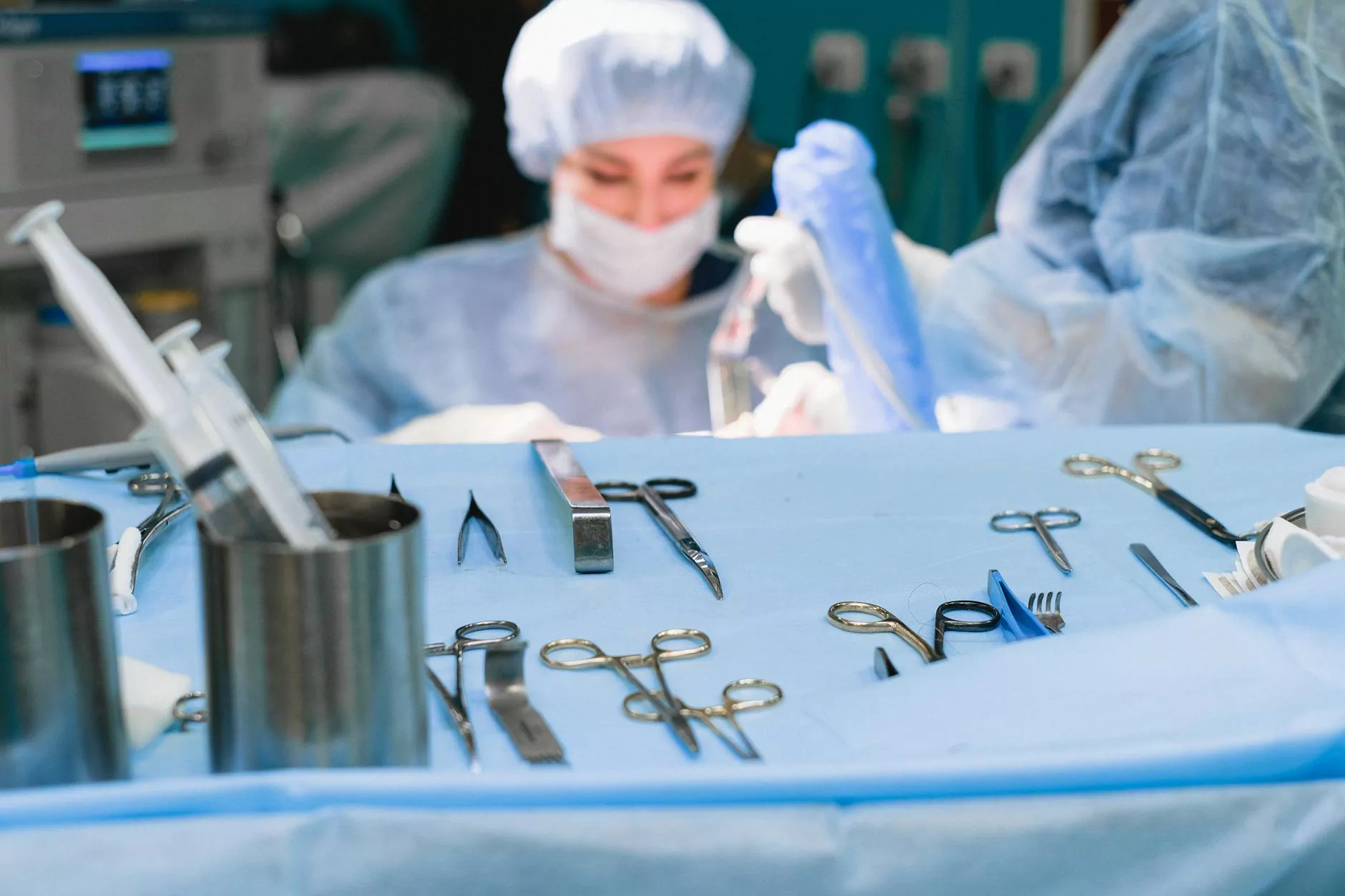The Comprehensive Guide to Gastric Bypass

Gastric bypass surgery has emerged as a groundbreaking solution for individuals struggling with obesity. This comprehensive guide will delve into the multifaceted world of gastric bypass, exploring its benefits, procedures, and how it is revolutionizing the health landscape for many. Whether you are seeking information for yourself or a loved one, understanding the ins and outs of this procedure can be life-changing.
Understanding Obesity and the Need for Gastric Bypass
Obesity is not merely a cosmetic issue; it is a profound medical condition that increases the risks of various health problems, including:
- Type 2 diabetes
- Heart disease
- High blood pressure
- Sleep apnea
- Certain types of cancer
As per the World Health Organization (WHO), obesity rates have nearly tripled since 1975, with millions worldwide affected. This alarming trend has catalyzed the exploration of effective treatment options, leading to the popularity of gastric bypass surgery.
What is Gastric Bypass Surgery?
Gastric bypass surgery, officially known as Roux-en-Y gastric bypass, is a definitive weight-loss procedure that alters the digestive system to restrict food intake and nutrient absorption. It involves two key steps:
- Creating a Small Stomach Pouch: The surgeon creates a small pouch at the top of the stomach, effectively limiting food intake.
- Bypassing the Small Intestine: The small intestine is then rerouted to connect to this pouch, allowing food to bypass a significant portion of the digestive tract.
This dual approach not only helps individuals consume less food but also promotes a feeling of fullness sooner, significantly enhancing weight loss outcomes.
Benefits of Gastric Bypass Surgery
The benefits of gastric bypass extend far beyond weight loss. Here’s a detailed look at how this procedure can transform lives:
1. Significant Weight Loss
Patients can expect to lose 50-70% of their excess weight within 18-24 months post-surgery. This rapid weight reduction can drastically improve overall health and quality of life.
2. Improvement in Comorbid Conditions
Many patients experience substantial improvements in obesity-related conditions, including:
- Type 2 Diabetes: Studies show that nearly 80% of diabetic patients achieve remission after surgery.
- Cardiovascular Health: Weight loss will lead to lowered blood pressure and improved cholesterol levels.
- Joint Disorders: Reduced weight alleviates stress on joints and can mitigate pain from conditions like arthritis.
3. Enhanced Quality of Life
With weight loss, many patients report increased mobility and energy levels, enabling a more active lifestyle. Moreover, the psychological benefits, including improved self-esteem and body image, are invaluable.
4. Long-term Health Outcomes
Research indicates that individuals who undergo gastric bypass surgery enjoy longer life expectancy and a reduced risk of obesity-related illnesses when compared to those who attempt to lose weight through diet and exercise alone.
Who is a Candidate for Gastric Bypass Surgery?
While gastric bypass can provide life-altering benefits, it is not suitable for everyone. Ideal candidates typically include:
- Individuals with a body mass index (BMI) of 40 or higher.
- Individuals with a BMI of 35 or higher who suffer from obesity-related health conditions.
- Those who have previously attempted non-surgical weight loss methods without success.
- Individuals committed to a long-term lifestyle change and follow-up care.
The Gastric Bypass Procedure: What to Expect
Pre-surgery Preparation
Prior to surgery, patients undergo extensive screenings, including psychological evaluations and nutritional consultations. The purpose of these evaluations is to ensure that candidates understand the procedure and are prepared for the necessary lifestyle changes.
The Surgery Itself
Typically performed under general anesthesia, gastric bypass surgery takes about 2-4 hours. It can be performed using traditional open surgery or minimally invasive laparoscopic techniques, depending on the patient's specific needs and the surgeon’s expertise.
Post-surgery Recovery
After surgery, patients are closely monitored during their hospital stay, usually lasting 2-4 days. The initial recovery phase involves:
- Introduction of a liquid diet, progressing to soft and solid foods as tolerated.
- Regular follow-ups with the healthcare team to monitor health and progress.
- Partaking in physical activity as directed by the surgeon.
Long-term Dietary Changes After Gastric Bypass
A crucial aspect of success post-surgery is the commitment to a new way of eating:
- Portion Control: Due to the reduced size of the stomach pouch, patients must be mindful of portion sizes.
- Balanced Nutrition: Emphasis is placed on consuming high-protein, low-carb, and nutrient-rich foods.
- Supplementation: Lifelong vitamin and mineral supplementation is often necessary to prevent deficiencies.
Potential Risks and Considerations
Like any surgical procedure, gastric bypass carries risks, including:
- Infection
- Blood clots
- Leakage from the surgical connections
- Nutritional deficiencies
- Dumping syndrome, characterized by nausea and rapid bowel movements after eating
It is essential for potential candidates to discuss these risks thoroughly with their healthcare provider and weigh them against the potential benefits.
Finding the Right Medical Center for Gastric Bypass
If you are considering gastric bypass surgery, finding a qualified medical center is paramount. Antalya Health is recognized for its dedicated medical spas and centers, offering recognized specialists and comprehensive care tailored to each patient.
Key Considerations When Choosing a Center
- Ensure the center is accredited and staffed by experienced bariatric surgeons.
- Look for patient reviews and testimonials about their experiences.
- Discuss post-operative support services offered, including nutritional counseling and support groups.
- Evaluate the costs and insurance policies associated with the procedure.
Conclusion
The journey towards weight loss and improved health through gastric bypass surgery can be transformative. By understanding the procedures, benefits, candidacy assessment, dietary changes, and potential risks, individuals can make informed decisions regarding their health.
For those in search of effective weight-loss solutions, Antalya Health stands ready to assist with its dedicated resources and expert medical staff. The determination to embrace this life-changing opportunity marks the first step towards a healthier, more fulfilling life.
Take control of your health today and explore the possibilities that gastric bypass surgery can offer you. Your journey starts here!









